Table of Contents
Introduction: A Bright Child Lost in a Digital Fog
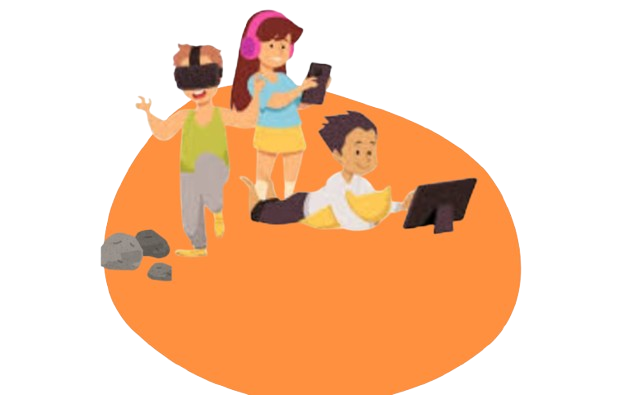
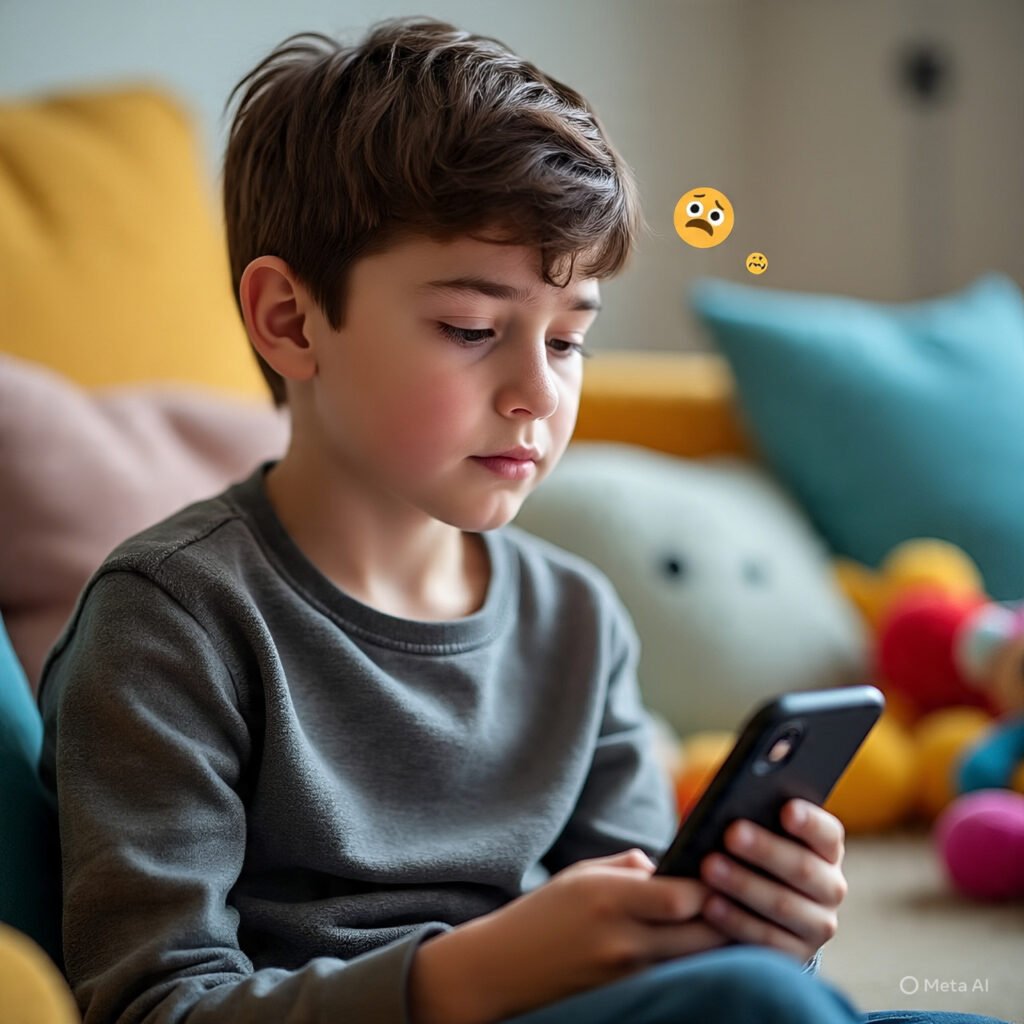
Aarav was a lively 7-year-old who used to enjoy bedtime stories and puzzle-solving with his mom. But once he got his hands on a mobile during the pandemic, everything changed. Initially, the device was meant for online school and occasional games. Soon, Aarav became glued to the screen—watching endless videos, ignoring playtime, skipping meals, and throwing tantrums when asked to put the device down. His cheerful nature faded. His curiosity dimmed. He became anxious and withdrawn.
Aarav’s story isn’t unique. In fact, it’s a reality for countless families today. Mobile addiction in children has quietly become one of the most significant emotional and developmental challenges of our time. And it’s not just about screen time—it’s about screen dependence, where a device becomes a child’s emotional escape, reward system, and primary form of stimulation.
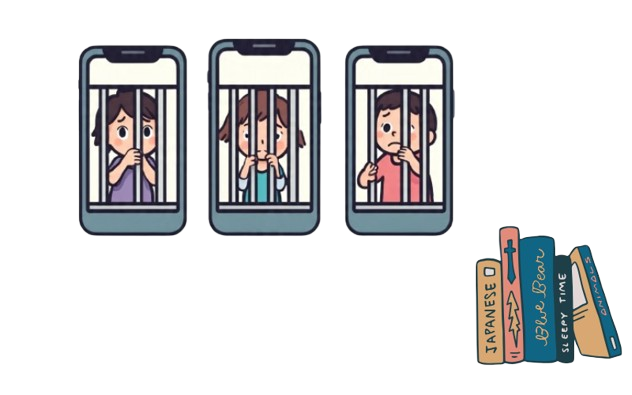
Understanding Mobile Addiction in Children
Mobile addiction in children refers to compulsive, excessive use of mobile devices that interferes with their daily lives—emotionally, socially, and developmentally. It’s different from regular screen use. It’s when a child begins to need the screen to feel happy, calm, or even just okay.
According to the World Health Organization, behavioral addiction like excessive screen use is linked to increased anxiety, emotional dysregulation, and sleep disorders in children. Mobile addiction in children is not about a lack of discipline—it’s about unmet emotional needs, overstimulation, and missing structure.
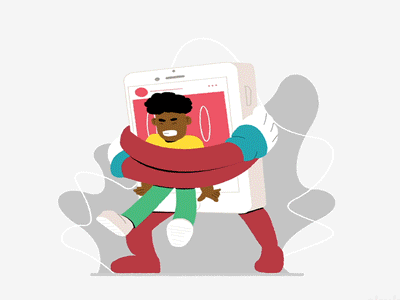
The Emotional Effects of Screen Time
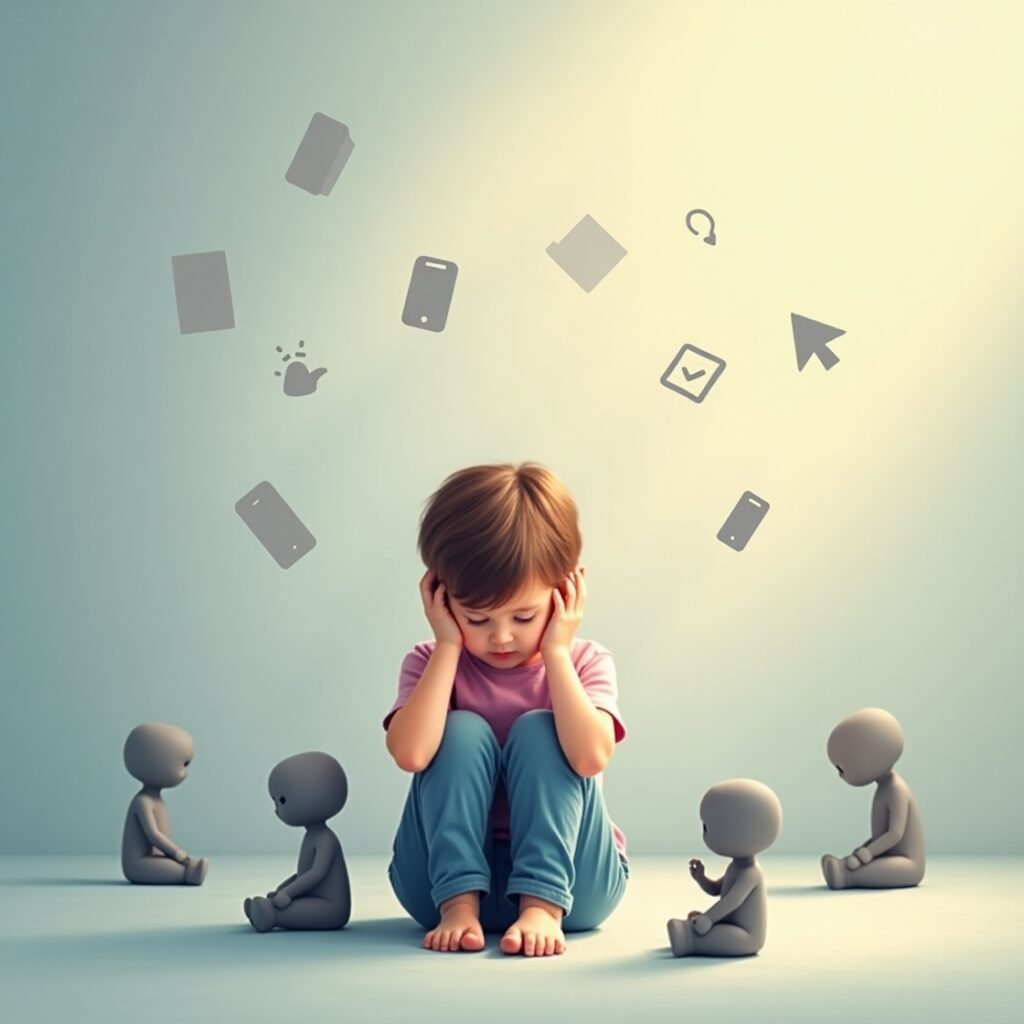
The emotional effects of screen time on children are profound. Multiple studies show that overexposure to screens can lead to:
- Mood swings and irritability
- Attention problems
- Decreased empathy
- Sleep disturbances
- Social withdrawal
- Increased anxiety and depression
A 2023 study published in **JAMA Pediatrics found ** that children who used screens for more than four hours a day had significantly higher cortisol levels (stress hormone), which impacted their emotional regulation and coping mechanisms. The constant digital stimulation overrides natural emotional rhythms and affects the brain’s ability to self-soothe.
Screen time mental health is no longer a theoretical issue—it’s an emotional reality for today’s children. And the longer it’s ignored, the deeper the emotional impact becomes.
Why Screens Are Emotionally Addictive for Kids

Children’s brains are wired for novelty and immediate feedback. Mobile devices offer instant gratification: video autoplay, likes on social media, fast-paced games, and constant notifications. This creates a powerful loop of dopamine release in the brain, which trains kids to seek stimulation through screens.
When screen-based dopamine becomes a child’s primary reward, everyday tasks—homework, family meals, reading—feel dull or even frustrating. This results in emotional instability, as children become dependent on devices for joy and regulation.
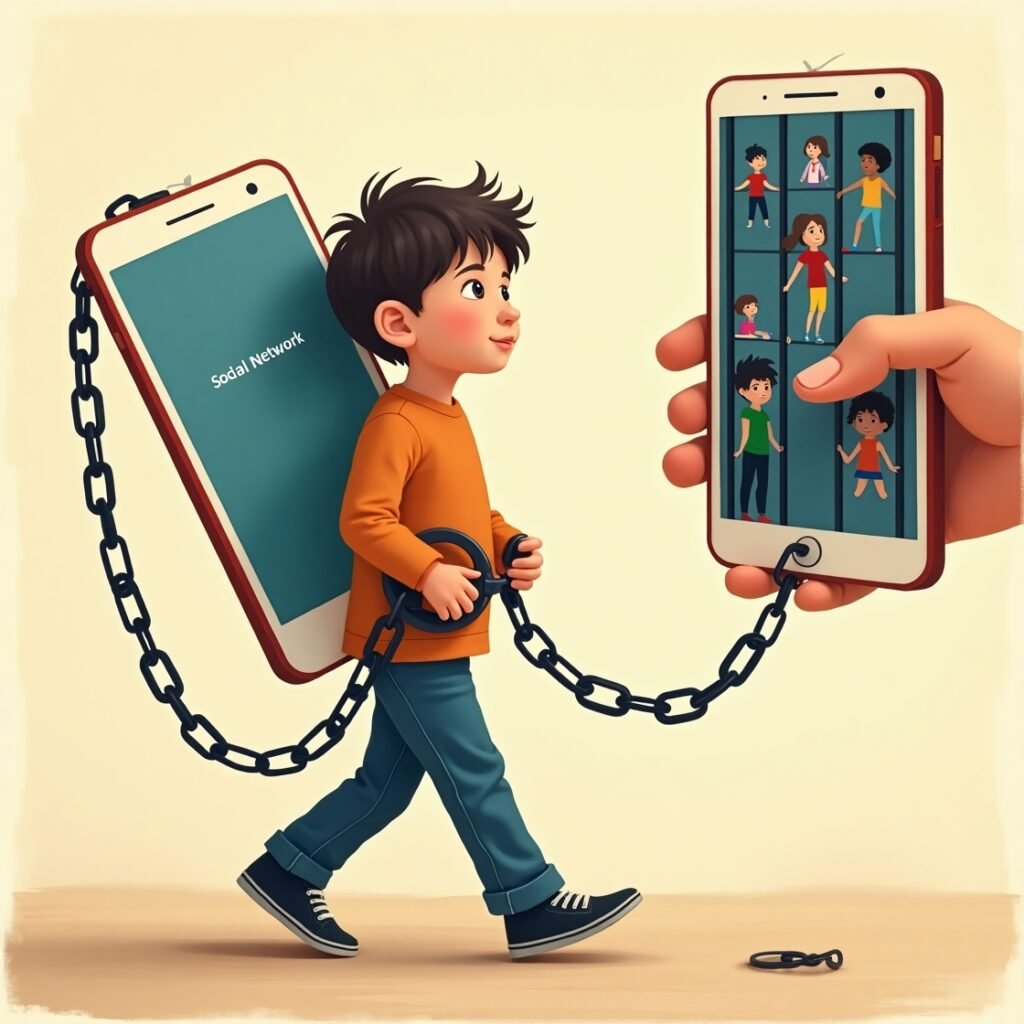
The Hidden Cost of Passive Screen Time
Passive screen time, like watching videos or scrolling endlessly, may look harmless, but it silently reduces a child’s resilience. Kids lose patience for slow activities, struggle with boredom, and become easily frustrated when things don’t go their way.
These behaviors are not just discipline issues—they are symptoms of emotional imbalance. As screen time increases, emotional expression and self-control decrease. This is where emotional effects of screen time truly manifest.
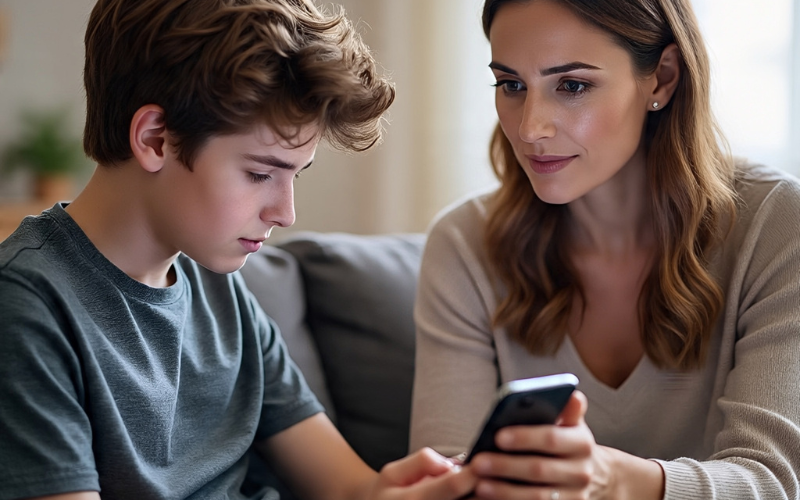
Real-Life Parenting Struggles
Neha, a working mother of two, shared:
“My younger son used to love puzzles and storytelling. But now, all he wants is his tablet. If I take it away, he yells, cries, and refuses to talk to me. He doesn’t want to go out and barely speaks to his brother. I feel like I’m losing him to a screen.”
Her story echoes with many parents. The guilt, helplessness, and confusion are real. Parents want to protect their child’s mental health but often don’t know where to begin—especially when digital learning and entertainment are part of daily life.
The Solution Isn’t Less Screen Time—It’s Better Screen Time

While it’s tempting to simply ban devices, the more sustainable solution lies in changing how screens are used. Instead of focusing on restriction, experts now recommend structured, meaningful, and interactive screen engagement.
This is exactly where Focus Fun makes a difference. Rather than pulling kids away from their devices, Focus Fun invites them to use technology in ways that build focus, resilience, and emotional intelligence.
Introducing Focus Fun: A Healthier Way to Use Screens
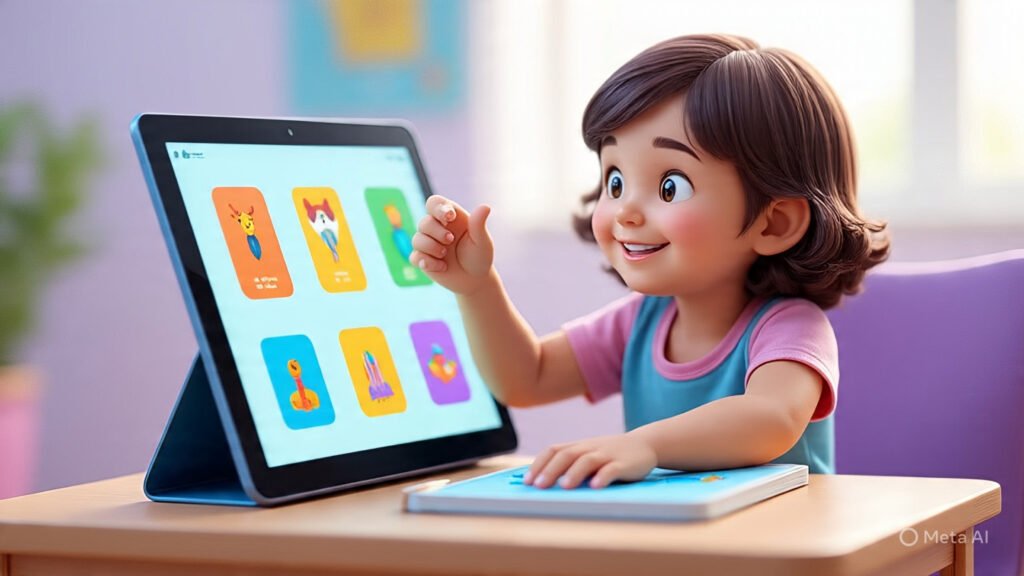
Focus Fun is a smart, interactive screen-time management app designed for children and parents. It helps reduce mobile addiction in children by transforming device usage into a goal-oriented, rewarding, and emotionally supportive experience.
The app offers:
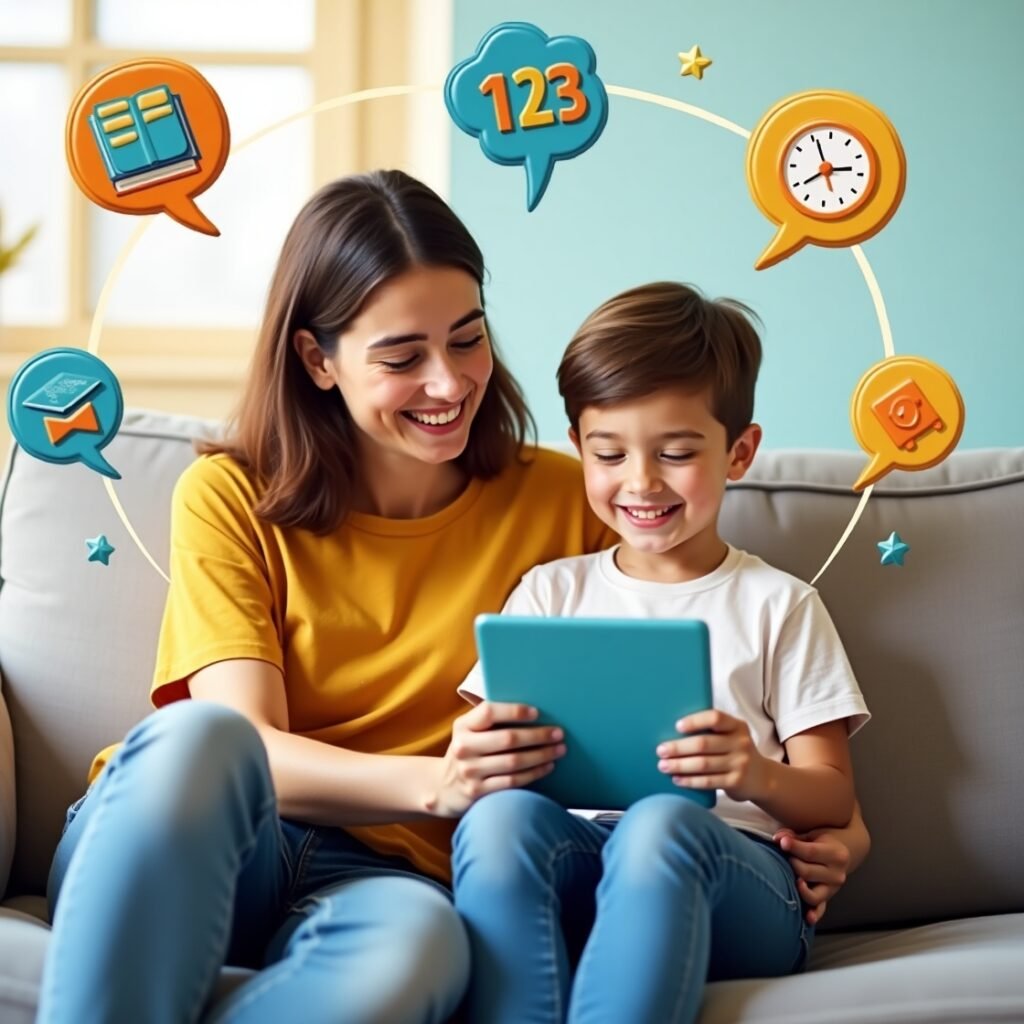
- Parental controls to limit access to distracting apps
- Daily challenges and rewards
- Usage reports and emotional behavior tracking
- Personalized profiles for each child
- A variety of gamified activities that encourage learning and self-regulation
It’s not just a timer or blocker—it’s a gentle guide that reshapes screen time to support screen time mental health.
Focus Fun’s Gamified Tools to Strengthen Emotional Well-being
Let’s take a look at how Focus Fun uses fun games to counter the emotional effects of screen time:
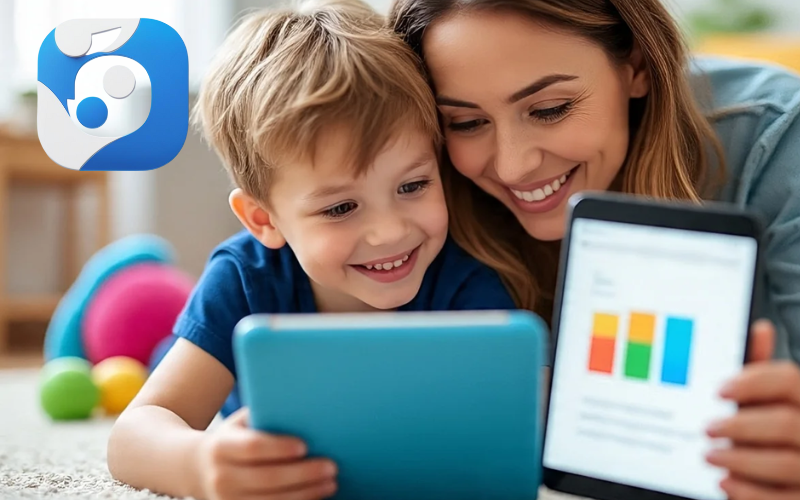
- Quiz Game
Encourages problem-solving and mental agility with age-appropriate questions.
Emotional Benefit: Boosts confidence, reduces anxiety through achievement. - Find the Picture
Requires attention to detail and calm observation to locate hidden objects.
Emotional Benefit: Strengthens patience, reduces impulsive behavior. - Math Games
Promotes logical thinking and structured problem-solving.
Emotional Benefit: Improves focus, encourages calming routines. - Tap on Colour
A fast-paced but focused activity that trains visual attention.
Emotional Benefit: Helps younger children manage hyperactivity and improve reflexes. - Match the Number
A memory-building game that enhances short-term recall and concentration.
Emotional Benefit: Improves emotional control by rewarding consistency and attention.
Each of these games provides dopamine in healthy ways—through patience, accuracy, and effort—rather than instant gratification.
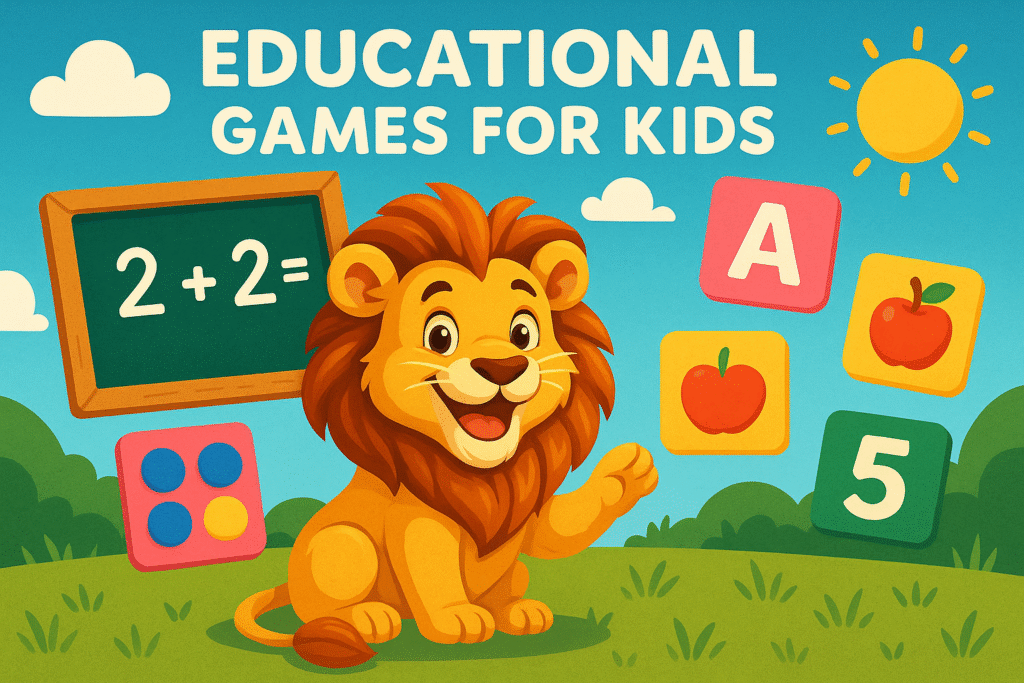

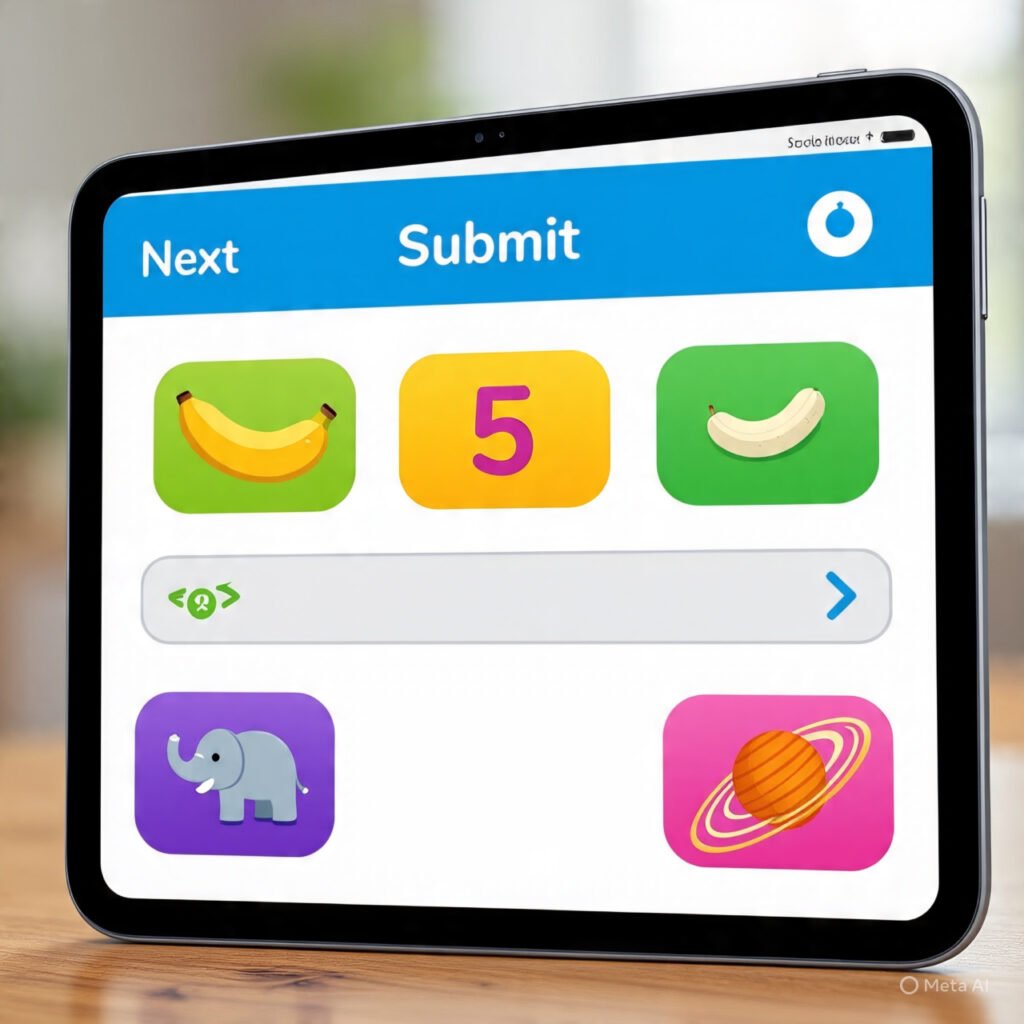
Psychologist-Approved: What Experts Say
Child behavior expert Dr. Meera Kapoor explains:
“Children don’t need to be removed from devices—they need guidance. Apps like Focus Fun provide that structure through interactive engagement, not isolation. This method empowers children to regulate their own emotions.”
She adds that emotional effects of screen time become manageable when digital tools are purpose-driven. Passive use increases emotional volatility, while active, rewarding use builds stability.
How Focus Fun Supports Parents
Beyond child engagement, Focus Fun also serves as a powerful parental companion. Parents can:
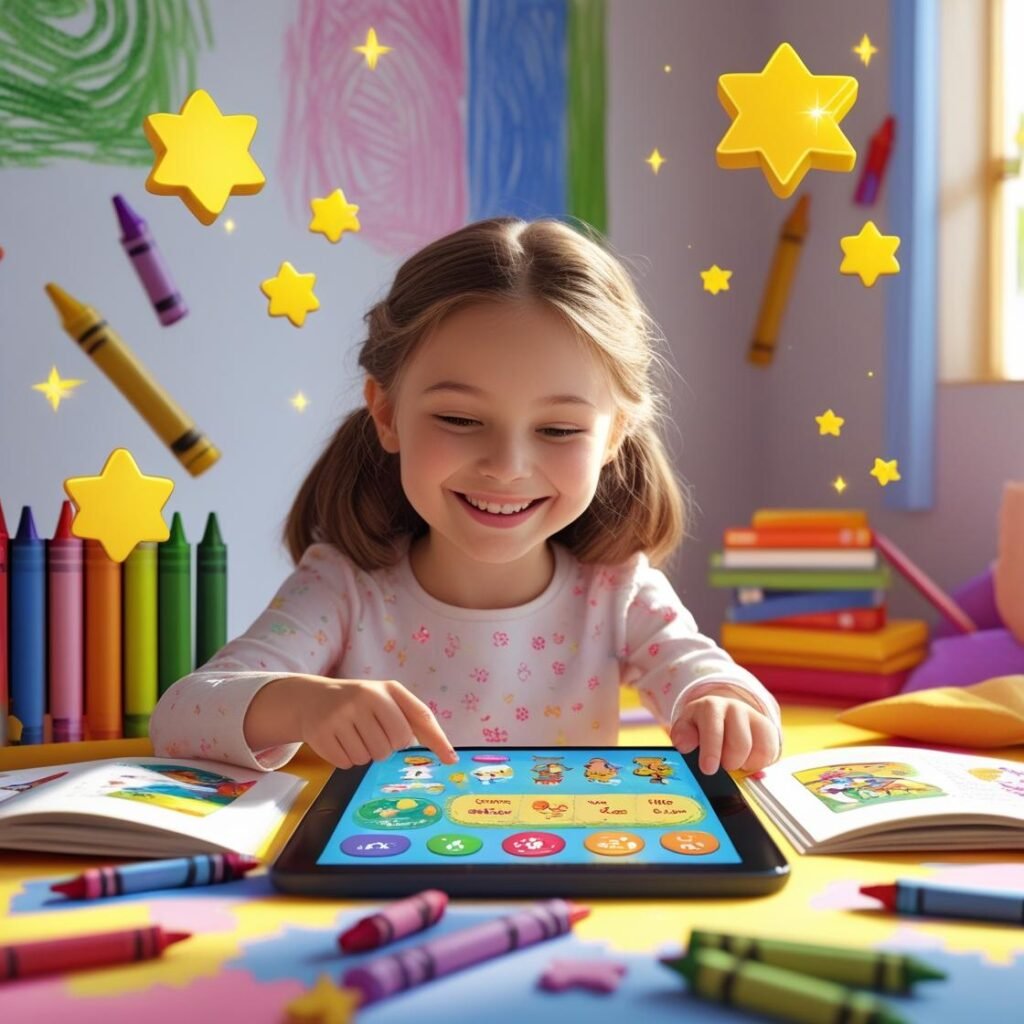
- Monitor screen usage trends
- Set daily goals and quiet hours
- Create family routines around screen use
- Celebrate emotional and behavioral milestones
By shifting screen control from confrontation to collaboration, Focus Fun removes the power struggle and fosters open communication between parents and kids.
Long-Term Emotional Benefits
When children use apps like Focus Fun regularly, parents often observe:
- Longer attention spans
- Fewer emotional outbursts
- Better sleep and reduced anxiety
- Increased interest in non-digital activities
It’s not magic—it’s mindful screen design combined with emotional reinforcement.
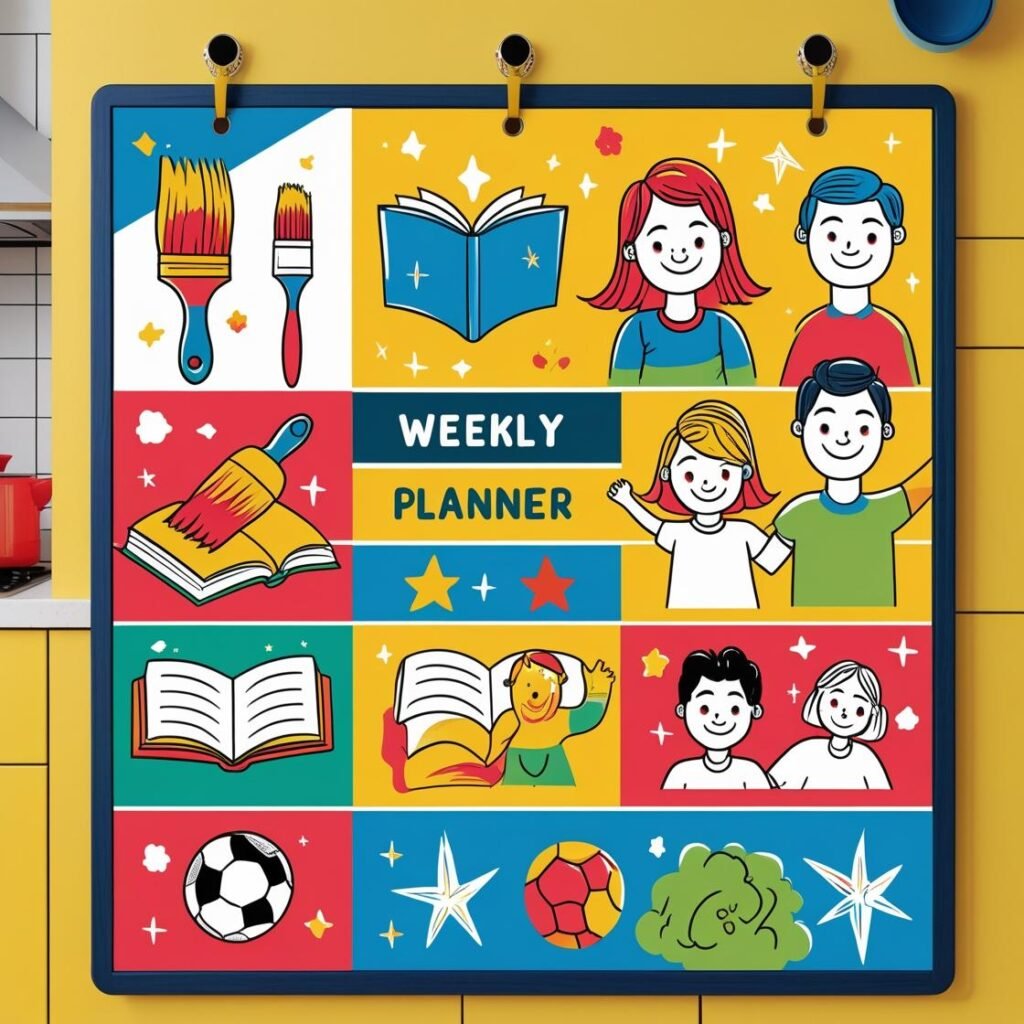
Creating a Digital Balance That Lasts
The goal of modern parenting isn’t to eliminate screens—it’s to balance digital and real-world experiences. Focus Fun acts as a bridge between the two. It helps children:
- Understand time limits without fear
- Enjoy screens without becoming addicted
- Learn while having fun
- Communicate openly with parents
Instead of fighting technology, Focus Fun teaches children to use it wisely.
Conclusion: Take Back Control—With Joy, Not Fear
The emotional effects of screen time can feel overwhelming, but the solution doesn’t have to be. With tools like Focus Fun, families can turn screen use into a shared, empowering experience that supports both mental health and joyful learning.
If you’re seeing signs of mobile addiction in your child—irritability, dependence, emotional outbursts—it’s time to act. But not with punishment. With purpose.
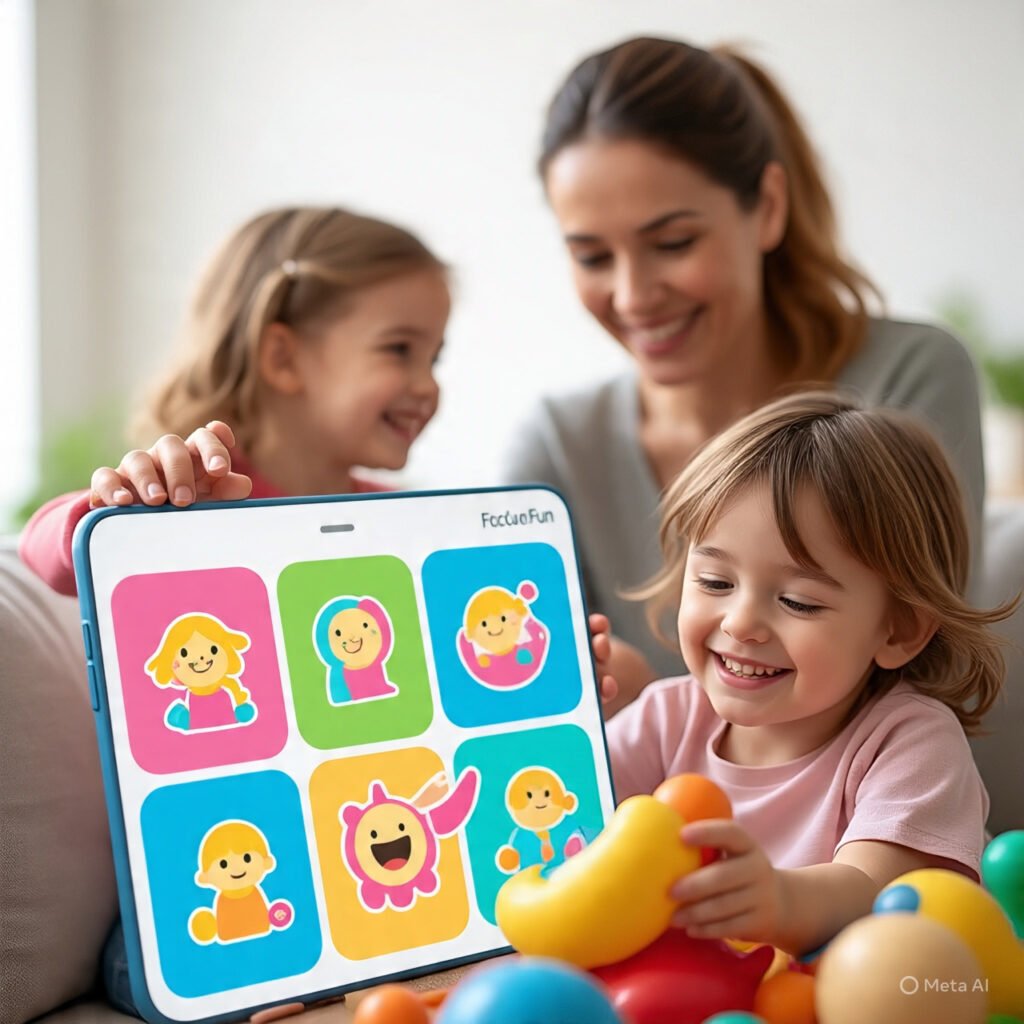
Focus Fun gives your child a healthy digital rhythm and gives you peace of mind. Let’s not fear technology—let’s teach our children to flourish with it.
Call to Action
📲 Download Focus Fun today and transform screen time into family time.
🎯 Let your** child grow emotionally**, not just digitally.
👨👩👧👦 Build a better screen-life balance, one game at a time.
Because with Focus Fun, screen time becomes smart time—and smart kids become strong, balanced, and joyful.
FAQ Frequently Asked Questions
How to help a child who is addicted to screens?
Create a consistent routine, use parental controls, and introduce screen-free zones at home. Involve your child in setting healthy screen limits. Apps like Focus Fun can make screen time educational, not addictive.
How do I detox my child from screen time?
Start by gradually reducing screen time rather than cutting it off completely. Replace it with engaging, non-digital alternatives like creative play, outdoor activities, or apps like Focus Fun that encourage brain development through purposeful gaming.
How many hours a day should a kid be on a screen?
For school-age children, 1 to 2 hours of recreational screen time is considered healthy. Too much exposure can lead to mobile addiction and impact sleep, focus, and social behavior.
How to remove mobile addiction from kids?
Start by identifying triggers—boredom, loneliness, or habit. Introduce limits, remove devices from bedrooms, and fill free time with curiosity-driven alternatives. Smart tools like Focus Fun can guide kids toward healthy screen habits.
What are the 3 C’s of screen time?
Content, Context, and Child.
To prevent mobile addiction, focus on what your child watches (Content), why and when they use screens (Context), and how it’s affecting their overall development (Child).
